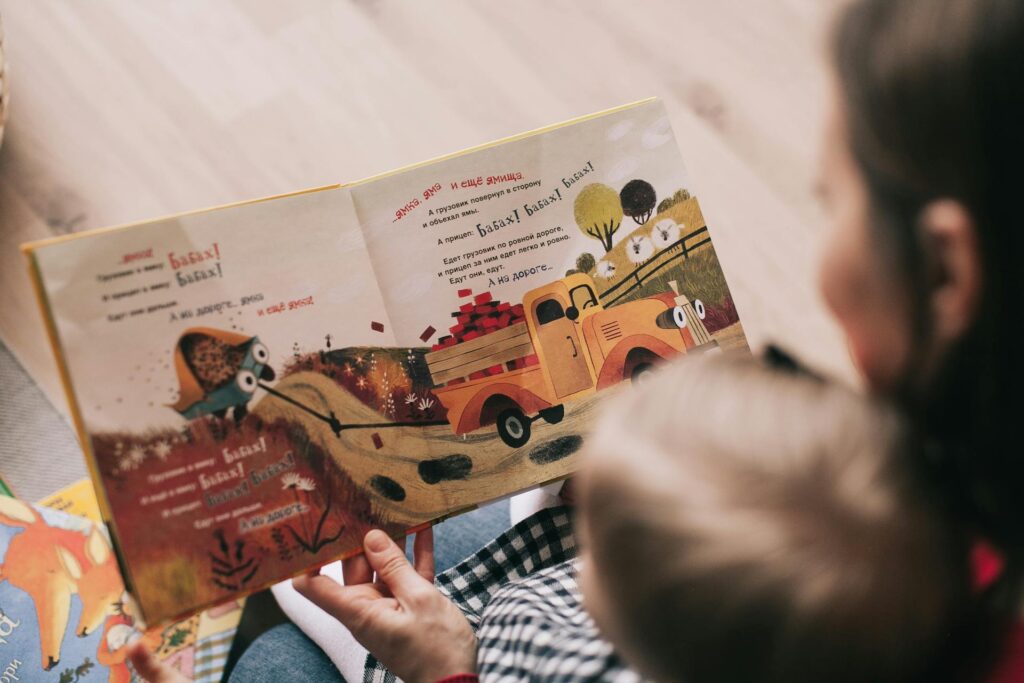Some of the links on this website are affiliate links, which means that if you click on them and make a purchase, I may earn a small commission at no additional cost to you. I only promote products and services that will add value to my readers. Thank you for supporting our work.
Building strong early literacy skills is crucial for young children as it lays the foundation for future reading and writing success. Encouraging early readers to engage with language through interactive and fun activities can help develop essential skills like phonemic awareness, vocabulary, and comprehension. Here are some practical ways to foster literacy development in early readers:
Read Aloud Daily
One of the most impactful ways to develop early literacy skills is to read aloud to children daily. Reading aloud helps children hear new words, understand sentence structure, and improve listening comprehension. Choose age-appropriate books that are engaging and colorful to keep their attention. Incorporating a variety of genres, from fiction to nonfiction, can broaden their exposure to different writing styles.
Encourage Phonics Practice
Phonics is a vital part of literacy for early readers. Teaching them how letters correspond to sounds will help them decode new words. Use phonics games, flashcards, or even apps to make learning phonics fun. Practice blending sounds to form words and break them into syllables for better understanding.

Promote a Print-Rich Environment
Surround your child with written words in everyday environments to build their print awareness. Label objects around the house, such as “door,” “table,” or “chair,” and encourage your child to read them. Provide access to books, magazines, or educational posters they can explore at their own pace. This exposure helps reinforce letter and word recognition, boosting early reading skills.
Interactive Storytelling
Get creative with storytelling! Encourage children to participate by asking them to predict what will happen next, describe the characters, or retell the story in their own words. This interactive storytelling helps develop comprehension and narrative skills, making reading a more engaging experience for early readers.
Sing Songs and Recite Rhymes
Music and rhymes play a huge role in developing literacy skills. Songs and nursery rhymes naturally introduce rhythm, repetition, and new vocabulary. These activities help children hear language sounds, which is important for phonological awareness and is a critical skill for learning to read.

Practice Writing Together
Early literacy isn’t just about reading; writing also plays a crucial role. Encourage your child to practice writing letters, words, or short sentences. You can start with simple activities like writing their name, labeling drawings, or creating a personal storybook. This helps them understand the connection between spoken and written language.
Use Literacy Games
Games are a great way to teach early literacy in a fun, low-pressure environment. Word puzzles, alphabet matching, and other literacy-based games can improve letter recognition, vocabulary, and problem-solving skills. There are also numerous online literacy games designed for young learners that reinforce reading concepts through play.
Visit the Library Regularly
Taking your child to the library helps foster a love of books and reading. Allow them to choose books that interest them and encourage them to explore different sections. Librarians often host reading events or Storytime sessions that are geared toward early readers, which can further support their literacy development.

Model Reading Behavior
Children often mimic the behaviors they see, so make reading a visible and enjoyable part of your daily routine. Whether it’s reading the newspaper, a novel, or even a recipe, let your child see you engage with written materials. This will show them that reading is an important and fun activity.
Use Technology Wisely
Many educational apps and digital tools can support early literacy. These apps are often designed with interactive stories, games, and quizzes that promote reading, spelling, and vocabulary skills. However, be mindful of screen time and balance it with other literacy activities like reading physical books and engaging in hands-on learning.
In conclusion, helping early readers develop strong literacy skills is critical to their academic success and a lifelong love of reading. By incorporating strategies such as daily reading, phonics practice, and interactive storytelling, you can give your child the tools they need to become confident and capable readers. With some creativity and consistency, fostering early literacy can be a fun and rewarding experience for you and your child.

